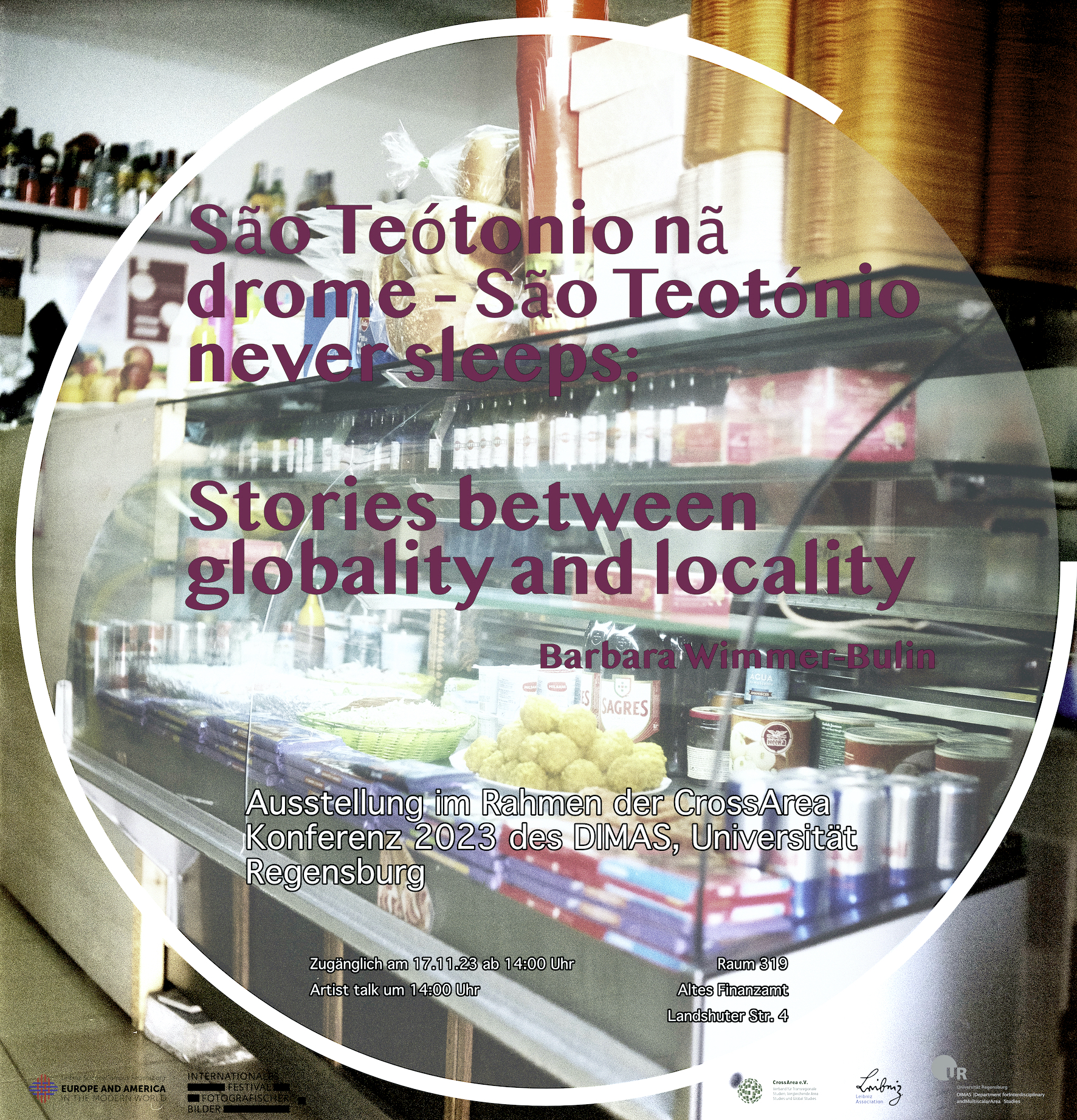Exhibition | Barbara Wimmer-Bulin | São Teotónio nã drome – São Teotónio Never Sleeps: Stories between Globality and Locality
This exhibition accompanies the CrossArea 2023 conference and DIMAS kick-off event held on 16–17 November. Selected photographs will be on show throughout the conference. The artist will give an introductory talk to her work on 16 November at 16:00 for conference participants, while as a postscript to the conference there will be a longer artist talk at 14:00 on 17 November as part of the Internationales Festival Fotografischer Bilder.
Located near the South West Alentejo and Vicentine Coast Natural Park, the village of São Teotónio and its ca. 5,500 permanent inhabitants are witnessing first-hand the transformations and paradoxes caused by a boom in the rapid expansion of agriculture and tourism. Industrial-scale farming has seen multinational enterprises bring in tens of thousands of labourers, many seasonal others seeking opportunities for permanent residency, from over 25 countries. At the same time as the landscape is increasingly marked by the plastic tunnels used for fruit production that is exported to the EU, growing numbers of tourists are arriving in search of unspoilt landscapes, creating tensions on how the Natural Park and the surrounding area are to develop.
The paradoxes and tension are manifested in multidirectional mobilities of seasonal workers, labour migrants, incoming tourists and locals departing in search of prosperity in western and central Europe. The incoming migrants have settled largely in the rural areas around the village, where infrastructure is poor and competition for resources with the agricultural and tourist industries is strong. Online and offline, in everyday and in political discourses, debates over scarcity, difficult living conditions and limited resources are omnipresent, leading to increasingly confrontational positions.
I spent several months in the area in 2016/17, combining my roles as an ethnographer and photographer with the aim of capturing the broad range of interconnections and frictions of globality and locality in the area. I started to photograph the traditional shops in the centre of the village which were starting to disappear and be replaced by a new culture of shops, with Indian, Bulgarian and Nepalese shops and fast-food restaurants opening. I also conducted interviews with representatives of schools, integration projects, politicians and residents from around the world to work towards understanding how people respond to profound change in their lives and surroundings. In the project, I intersect photography, participant observation, institutional analysis and discourse analysis, as well as my own experiences as an immigrant, to offer multiple perspectives on the complex of globality and locality as it plays out in southwest Portugal.
Since my fieldwork, further changes have occurred and my photographs and study could be framed as witnesses to a historical moment within a large-scale transformation process. The old shops that I have photographed are now all but gone and there are no more Portuguese restaurants. Living conditions for migrant labourers, already difficult in 2016/17, seem to have become even worse. Outward migration among the Portuguese population has continued, while the remaining locals struggle to comprehend the scale of change around them. Still, magazines like National Geographic continue to describe the Natural Park and the coastline as a hidden paradise.
Barbara Wimmer-Bulin has spent her life in various countries: she was born in Togo, spent part of her childhood in Bavaria before moving as a youth the Portugal, before spending her early adulthood in Prague. Her subsequent return to Bavaria endowed here with new perspectives on questions of locality, place and languages. These experiences have shaped her approach to critical social issues, positioning her work at the intersection of research and art, producing among other things documentary studies in the field of visual anthropology. Her artistic and research focus is on questions of the interrelations between humans and the environment, as well as human self-definitions and perceptions of the world around them. Questions such as are humans destroyers or creators accompany her work, as does the issue of finding a balanced and sustainable way of humans and nature cohabiting.
Alongside international group exhibitions, she has presented a wide range of individual shows that have received international recognition in shortlistings in competitions. She is currently teaching classes at the Chair of Media Studies at the University of Regensburg, while also working freelance with the Archaeological Museum in Kelheim as well as being a project coordinator and photographer with a focus on artistic research.
This exhibition takes place in collaboration with the Internationales Festival Fotografischer Bilder.
Photograph (c) by Barbara Wimmer-Bulin – A Punjabi fast food counter in São Teotónio
Full CrossArea conference programme

